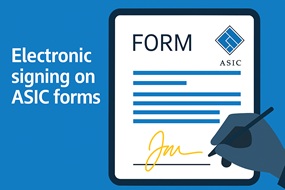We want to wish you some well-deserved time off to indulge in the festive spirit and update you with helpful information about companies and trusts.
Significant Duty Changes
The NSW budget was delivered on 19 September 2023. The announcements in the budget are amending some long-standing duty and land tax provisions, effective 1 February 2024.
The main changes here are that the duty on establishment of trust will increase from $500 to $750. Duplicate copies increase from $10 to $20 for each.
Clients who pay $500 for the Revenue NSW stamping fee via our website prior to 31st January 2024 but have their deeds stamped on or after 1st February 2024 will be invoiced for the additional $250 duty.
Modernising Business Registers (MBR) Program Cancelled
On 28 August 2023, The Hon Stephen Jones MP, Assistant Treasurer and Minister for Financial Services, announced the cessation of the MBR program following an independent review completed in July. The independent report found that the MBR Program could cost up to $2.8 billion, more than five times the original $480.5 million estimated. It also found that delivery of the Program would be delayed by 5 years to 2029. The report found that the economic benefits do not justify the extra costs.
Since 5 April 2022 it has been a requirement of Directors to apply for a Director ID before their appointment as a Director. This regime continues unaffected, but at present, Director IDs are not public, administered through Australian Business Registry Services (ABRS), and are not linked to the ASIC database. As such, the regime is probably not meeting its goals of tackling ‘phoenixing’ activities and increasing Director accountability and traceability.
Extension of Electronic Signing & Delivery for Companies
The ‘Treasury Laws Amendment (Modernising Business Communications and Other Measures) Bill 2023’ was passed in September 2023, and extends the measures introduced in the Bill of the same name passed in 2022. These Bills, among other measures, clarify and formalise the process of electronically signing legal documents including Trust Deeds.
While electronic signing of Deeds is permitted under legislation, care should be taken to ensure that banks and other institutions engaged by the Trustee also accept this practice. Some banks, in particular, still require Deeds to be ratified where electronic execution has occurred, and this may result in extra cost or delay to the Trustee. In these circumstances, the Trustee may like to consider execution of the Deeds via wet signature wherever reasonably possible.



